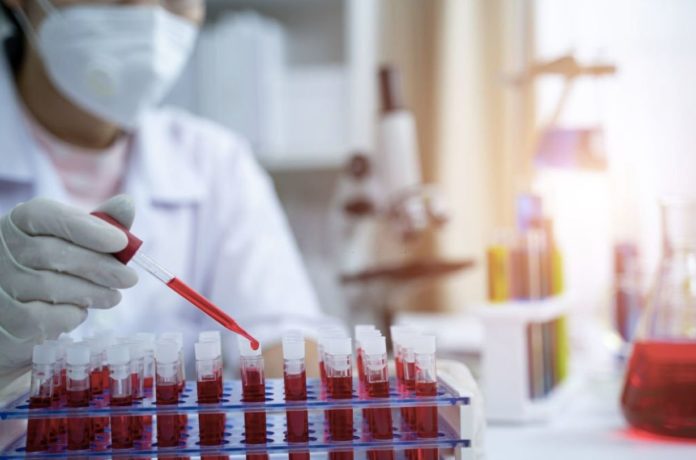A new study by UCL researchers shows that a single gene therapy injection could greatly reduce the risk of bleeding in people with haemophilia B.
Experts from UCL, Royal Free Hospital, and biotechnology company Freeline Therapeutics tested and are still evaluating a new type of adeno-associated virus (AAV) gene therapy candidate, called FLT180a, to treat severe and moderately severe cases of the condition for the paper, which was published in the New England Journal of Medicine.
Haemophilia B is a rare genetic bleeding disorder that is passed down from parent to child. It is caused by low levels of the factor IX (FIX) protein, which is needed to make blood clots that stop or stop bleeding. A more severe form of haemophilia B is far more common in men since the gene that makes the FIX protein is found only on the X chromosome.
Currently, haemophilia B sufferers must administer recombinant FIX, or regular replacement therapy, to themselves on a regular basis (often weekly) to stop severe bleeding. Patients may still have crippling joint injuries despite breakthroughs in treatment.
The Phase I/II multi-center clinical trial called B-AMAZE and the related long-term follow-up study found that a single treatment with FLT180a led to sustained production of FIX protein from the liver in nine out of ten patients at four different dose levels. This meant that regular replacement therapy was no longer needed.
Ten men with severe or moderately severe haemophilia B out of 17 who were screened and were 18 or older took part in the 26-week FLT180a trial. All of them are also taking part in the 15-year follow-up study to see how safe and long-lasting FIX expression is.
“Removing the need for haemophilia patients to regularly inject themselves with the missing protein is an important step in improving their quality of life,” says Lead author Professor Pratima Chowdary, adding “the long-term follow-up study will monitor the patients for durability of expression and surveillance for late effects.”
AAV gene therapy delivers a functional copy of a gene directly to patient tissues to make up for one that isn’t functioning properly by employing a package made from the proteins found in the virus’ outer coat. The blood is released with newly created proteins, and a single infusion can have long-lasting benefits.
To keep their immune systems from rejecting the therapy, patients had to take drugs that suppressed their immune systems for a few weeks to a few months. All of them reported known side effects.
Atypical blood clots occurred in one patient who received the highest dose of FLT180a and had the highest levels of FIX protein, despite the fact that the medication was generally well tolerated.
Professor Amit Nathwani, a co-founder of Freeline and co-author of the study from UCL Medical Sciences, adds: “Gene therapy is still a young field that pushes the boundaries of science for people with severe genetic diseases.
Professor Amit Nathwani, a co-founder of Freeline and co-author of the study from UCL Medical Sciences, adds: “Gene therapy is still a young field that pushes the boundaries of science for people with severe genetic diseases.
“The B-AMAZE long-term data add to the growing body of evidence that gene therapy has the potential to free patients from the challenges of having to adhere to lifelong therapy or could provide treatment where none exists today.”
In nine out of ten patients, the treatment led to a steady rise in the production of FIX protein, which made the bleeding stop. Additionally, they no longer needed weekly injections of the FIX protein.
After 26 weeks, five patients’ levels of FIX protein were normal, three patients’ levels were low but going up, and one patient who was given the highest dose had a level that was too high.
“The B-AMAZE long-term data continue to support our confidence that a single dose of FLT180a could protect people with haemophilia B from bleeding and the need for lifelong FIX replacement through durable expression of FIX at protective levels,” says Pamela Foulds, MD, Chief Medical Officer of Freeline.
“The results of this important study are a perfect example of how UCL research and innovation can translate to real-world and life-changing impact,” remarks Professor Geraint Rees, UCL Vice-Provost for Research, Innovation, and Global Engagement and Non-Executive Director of UCL Business.
Image Credit: Getty
You were reading: A Single Dose Of New Gene Therapy Can Reduce Bleeding In Patients With Inherited Disease
